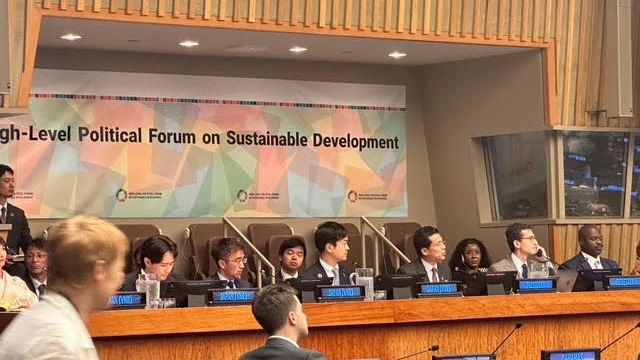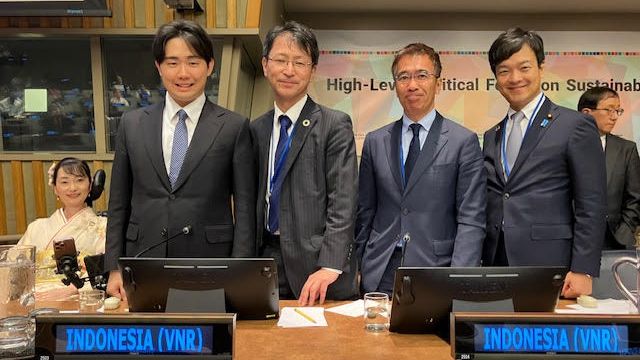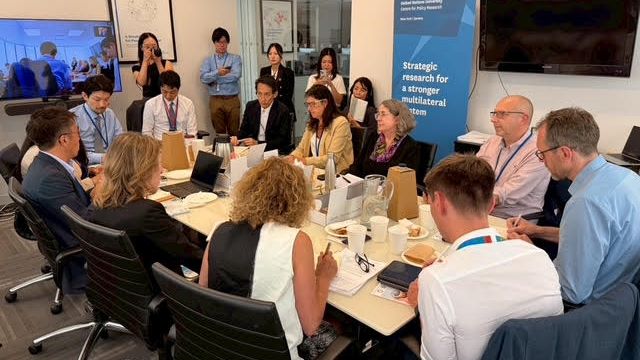Japan's VNR Presentation at HLPF: Embracing Inclusivity and Constructive Criticism
SDSN Japan Chair, Professor Kanie, shares insights on an inclusive review process and the importance of feedback for sustainable development beyond 2030.
In July 2025, Japan presented its 3rd Voluntary National Review (VNR) at the High-Level Political Forum on Sustainable Development (HLPF). Professor Norichika Kanie, Chair of SDSN Japan, had the honor of closing Japan’s presentation session with remarks highlighting the importance of multi-stakeholder input and constructive feedback
The HLPF is the United Nations' central platform for reviewing progress on the 2030 Agenda for Sustainable Development and its Sustainable Development Goals (SDGs) at the global level. Through the VNR process, UN Member States voluntarily assess national implementation of the SDGs, identifying challenges, sharing lessons learned, and fostering peer exchange.
Japan’s presentation featured a diverse set of voices. Mr. Takuma Miyaji, State Minister for Foreign Affairs opened the session. He was followed by Ms. Yuriko Oda, a wheelchair user who developed an application that shares accessibility information. andMr. Soichiro Chiba, a representative of a youth organization.Professor Kanie concluded the session with reflections on Chapter 6 of Japan’s VNR—a chapter he led as chief editor.
Dedicated entirely to a multi-stakeholder review, Chapter 6 embodies Japan’s commitment to transparency. In his remarks, Professor Kanie emphasized two key messages: the inclusive nature of the drafting process and the importance of openly acknowledging criticism. Chapter 6 explicitly includes critical perspectives on Japan’s SDG implementation, underscoring the value of honest feedback to strengthen future efforts..
Looking ahead, Professor Kanie urged the international community to think beyond 2030. As part of this forward-looking approach, SDSN Japan and the United Nations University (UNU) recently co-hosted an informal workshop with support from the UN Department of Economic and Social Affairs (UN DESA), bringing together stakeholders to explore a post-2030 vision.
Japan will also contribute to this global dialogue through “SDGs+ Beyond”, a program hosted at EXPO 2025 Osaka in October, which will further engage the public and global partners in imagining what comes after the 2030 Agenda.
“2030 is not the finish line,” Professor Kanie affirmed. “It is the starting point for a more sustainable future.”


